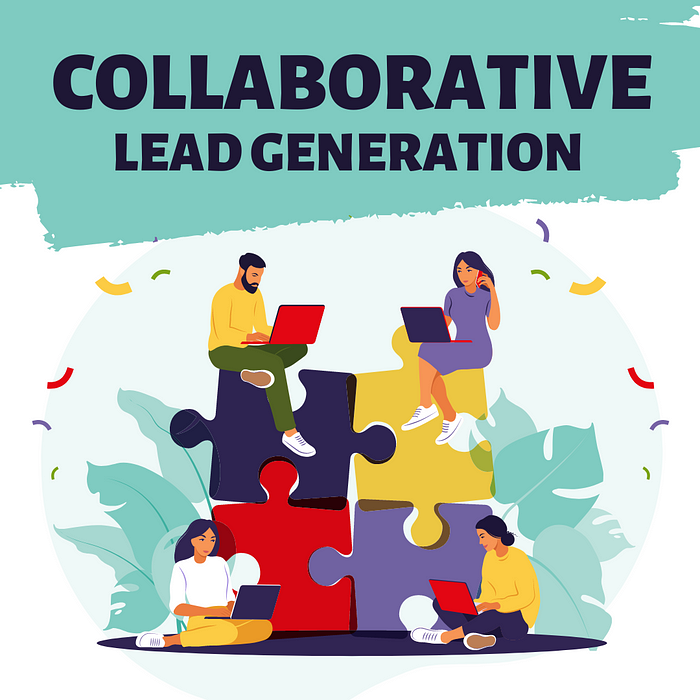Collaborative Lead Generation: Setting Realistic Expectations and Achieving Marketing Campaign Success Together

When you ask a business owner about the goal of their marketing campaign, most would likely respond with getting leads and conversions. Whether they run their marketing campaign via organic or paid advertisements, the aim is always to attract more customers and generate sales.
As marketers, we understand that our clients expect us to help them generate leads. Without leads, there can be no revenue for a business. Lead generation attracts potential clients to a business by nurturing and increasing their interest in its offerings. This can be achieved through various methods, such as organic content on social media, print or online advertisements, public relations campaigns, Facebook and Instagram ads, blog posts, coupons, live events, and website content.
However, not all clients may understand the process and strategy required to generate quality leads. Some clients may mistakenly believe that leads can be guaranteed, which is not always the case. For a successful lead generation campaign, several factors come to play that will eventually turn leads into sales. In this blog, we will highlight the importance of collaboration between clients and agencies in order to create a successful lead-generation campaign.
Set Realistic Expectations
For any client-agency relationship to work, it’s essential to establish realistic expectations from the onboarding stage. During an onboarding exercise with a new client, emphasise the campaign’s objectives and agree on the expectations. It is, of course, a marketer’s desire to generate as many leads as possible, However, while we cannot guarantee a specific number, we propose a set of KPIs that is more likely to be realistic for measurements.
Not all clients are familiar with lead generation and the process, so it’s always good to educate our clients that it is not an exact science. Several factors outside our control can impact the number of leads generated, which must be communicated upfront. These factors can include market competition, economic conditions affecting consumer behavior, changes in technology algorithms, shifts in consumer preferences, or challenges within the sales team. By acknowledging these factors and working collaboratively, we can set realistic expectations and strive toward a successful outcome.
Focus on the Process
One of the optimal ways of a successful lead generation marketing campaign is to shift the focus from promising a specific number of leads to focusing on the importance of the process itself. Instead of making unrealistic promises, work closely with clients to explain the various strategies involved in lead generation, such as consistent brand awareness, creative content marketing, and social media advertising.
It is essential to remind clients that building trust with potential customers takes time and cannot be achieved overnight. Shifting the focus to the process rather than the end result will create a strong foundation for generating quality leads over the long term.
Provide Regular Updates
Regular communication is critical in any client-agency relationship and especially important in lead-generation marketing campaigns. Provide regular updates to your clients, keep them informed of the campaign progress areas that need improvement, and make data-driven decisions to optimize your lead generation strategy. The best way to build strong relationships is to keep your clients informed of your successes and challenges and demonstrate that you are actively working on their campaign.
Be Honest
Nothing beats honesty! Be transparent about the progress of the lead generation efforts. It is important that clients acknowledge that there is no magic formula for success. If a campaign is not producing the desired results, marketers must communicate this to the client and explain why the current strategies are ineffective. Suggest adjustments and emphasize that lead generation requires time, effort, and patience to achieve desired outcomes. Clients will appreciate the transparency and better understand the process by being honest about the challenges.
Emphasize the Importance of Collaboration
Collaboration is the key to success! As a client, they need to understand that generating quality leads requires a team effort. They must give your agency insights into their services, products, and unique selling propositions. This way, the marketing team can create the most effective creative and lead campaigns that resonate with your target audience.
From a client’s point of view, it is essential that they are open to feedback and suggestions from their marketing agency. When a client acknowledges their part of the process and works collaboratively, there is a higher chance of achieving the desired results. Remember, while the agency is responsible for generating qualified leads, clients also need the best team of salespeople to close the deals.
Conclusion
While it may seem like a walk in the park, lead generation is a specialized and difficult task. However, one can achieve a successful lead generation campaign by focusing on the processes to achieve the desired outcome.
By following the key principles of setting realistic expectations, focusing on the process, providing regular updates, being honest, and emphasizing collaboration, clients, and agencies can work together to achieve their lead-generation goals.
With a solid partnership and a commitment to open communication and teamwork, generating high-quality leads can become a rewarding and successful journey.
